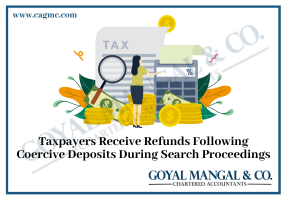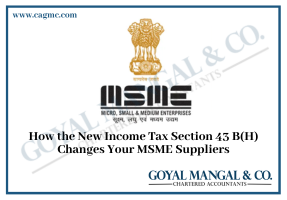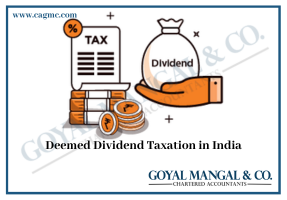
The provisions on penalties and offenses are quite similar to the Excise Act. The customs law envisages two types of penalties, viz., first, civil liability: penalty for violation of statutory provisions involving fines and confiscation of goods. Second, criminal liability: the criminal penalty is imprisonment and a fine; which can only be granted in a criminal court after the initiation of criminal proceedings. Both punishment and punishment can be imposed for the same offense.
In this article, we will discuss in detail the offenses and penal provisions under the Customs Act 1962.
|
Table of Contents |
Penalty under the Customs Act, 1962
Penalties are imposed on any person who does or omits to do, to any goods, an act which renders those goods liable to confiscation. Therefore, it is necessary to first understand what goods subject to confiscation are. In general, goods are subject to confiscation in case of incorrect import of goods or incorrect attempt to export goods. Section 111 lists the goods subject to seizure for wrongful importation, while Section 113 details the goods subject to seizure for attempted wrongful exportation.
Activities that attracts penalty
Smuggling– Smuggling, concerning goods, means any act or omission which renders those goods liable to seizure under section 111 or 113. [Section 2(39)].
So ‘improper import’ attempted improper import or attempted improper export will equal “smuggling”. So “smuggling” is a much broader term than we commonly understand it. Because “smuggling” has been specifically defined, the normal or dictionary meaning cannot be used.
Improper Imports– As per Section 111, goods improperly imported into India from a place outside India are subject to confiscation. The importing or attempting to import prohibited goods, declaring goods wrongly, evading payment of duty, or violating rules relating to the movement, storage, unloading, or use of imported goods makes them liable to confiscation under Section 111. This is included in the definition of ‘smuggling’.
Prohibited Goods– Section 2(33) of the Customs Act defines – prohibited goods means any goods the import or export of which is currently prohibited under the Customs Act or any other law, but does not include any such goods for which the conditions under which the import or export of goods are permitted have been met.
Improper Export– As per Section 113, ‘goods attempted to be improperly exported’ are subject to confiscation. The attempting to export goods in violation of law, exporting under a false claim for duty drawback, declaration of goods wrongly, or breaching the rules relating to the movement, and loading of exported goods will result in confiscation under section 113. All of these are included in the definition of “smuggling”.
Non-duties and non-prohibited goods can also be confiscated– Section 113 previously regulated confiscation only in the case of dutiable or prohibited goods. Attempting to illegally export any goods or misdeclaring any goods (whether dutiable or prohibited or not) is subject to confiscation.
Over invoicing/misdeclaration for exports– Sometimes exports are made at inflated prices to avail export benefits.
Persons who may be penalized
Customs authorities are empowered to impose a monetary penalty, and confiscation of goods, transportation, etc. These are provided separately as the smuggler may not be traceable if contraband is abandoned. In such cases, it is not possible to impose a fine, but the goods may be confiscated. A fine can be imposed for both improper import and attempted improper export.
Penalty for wrongful importation– Section 112 of the Customs Act provides that a fine may be imposed on any person:
- who does or omits to do any act, the doing or omission of which would cause such goods to be seized under section 111 of the Customs Act, or who assists in doing or omitting to do such act
- who obtains possession of or is in any way engaged in carrying, depositing, keeping, holding, harboring, selling, or buying or in any other way dealing with any goods which he knows or has reason to believe are subject to confiscation according to section 111.
Monetary sanctions in customs
The Customs Act regulates the following monetary sanctions.
Improper importation– Section 112 provides penalties for improper importation:
- not exceeding the value of the goods or Rs.5,000, whichever is higher, if the imports are prohibited under the Customs Act or any other law.
- not exceeding the required duty circumvented in the case of goods subject of duty not being prohibited goods or Rs.5,000, whichever is higher.
- If the actual value is greater than the value declared in the bill of entry or baggage declaration, the difference between the actual and declared value does not exceed the value or the amount of Rs. 5,000, whichever is higher.
- If the goods are prohibited and the value is wrongly declared, a fine not exceeding the value of the goods or the difference between the actual value and the declared value or amount of Rs 5,000, whichever is higher.
- If the goods are not prohibited but are sought to be evaded and their value is wrongly declared, a fine not exceeding the duty demanded or the difference between the actual value and the declared value or Rs.5, 000, whichever is higher.
In any case, the minimum fine is Rs. 5000/-.
Attempted wrongful export– Section 114 provides for penalty for attempted wrongful export
- If the export of goods is prohibited under any law, not exceeding the value of the goods or Rs.5000, whichever is higher.
- If the goods are liable to export duty but not prohibited goods, a penalty not exceeding the duty to be evaded or Rs.5,000, whichever is higher.
- In the case of other goods, a penalty not exceeding the value of the goods declared by the exporter or the value determined under the Customs Act, whichever is higher.
The last clause i.e. (iii) is amended w.e.f. 14-5-2003 to cover cases where the export value is inflated. The export value is inflated so the exporter is entitled to higher export benefits. In the case of (i) or (ii), the minimum fine is Rs. 5,000.
Residual Penalty – Section 117 of the Customs Act provides general penalties to a person who contravenes or commits a contravention of any provision of the Act and if no penalty has been provided, the penalty would be up to Rs. 10,000.
Short Landing Penalty– If the goods have been loaded for import into India but not unloaded in India– partially or fully– the shipping agent must explain the reason for the shortfall. If this is not satisfactorily explained, the Deputy Commissioner may impose a fine up to double the amount of duty ordinarily payable on the imported goods under section 116. The fine is payable by the carrier of the goods. This provision is intended to ensure that the carrier unloads goods only at approved locations and that no smuggling occurs without the carrier’s consent.
The fine is mandatory – Sections 112, 114, and 117 use the words “subject to a penalty”. In Indo-China Steam Navigation v. Jasjit Singh 1983(13), it was held that if the word used is “shall”, some penalty must be imposed, though the amount may be less if any are extenuating circumstances.
Procedure for imposing a fine
Section 124 of the Customs Act states that before a penalty is imposed, the person concerned must be notified of the reasons for the seizure and should be allowed to comment and be heard. Such notifications and statements may be oral at the request of the person concerned. [This provision was adopted to speed up the settlement process].
Declaration before Customs is relevant in evidence
A declaration made and signed before any Customs officer of published rank is admissible in evidence in prosecution as follows:
- in the case of a person who is dead or cannot be found or whose presence cannot be obtained
- in the case of a person who is present before the Court and is examined as a witness, the Court may admit the statement if it considers that the statement is in the interests of justice.
It is therefore left to the discretion of the court in the case of statements made before a customs officer only when such a person is examined as a witness. This provision also applies to departmental decision-making. (Section 138)
Final words
Persons engaged in import or export activities in contravention of prohibitions or restrictions in vogue or with intent to evade duties or fraudulently claim export incentives are subject to strict prosecution under the Customs Act 1962. Violating goods may be confiscated and heavy fines may be imposed and sanctions imposed on the persons concerned. The sensitive goods like narcotics, FICN, arms and ammunition, etc. are confiscated. There are also provisions for arrest and prosecution to deter smuggling or trade fraud that seriously affects economic security.







